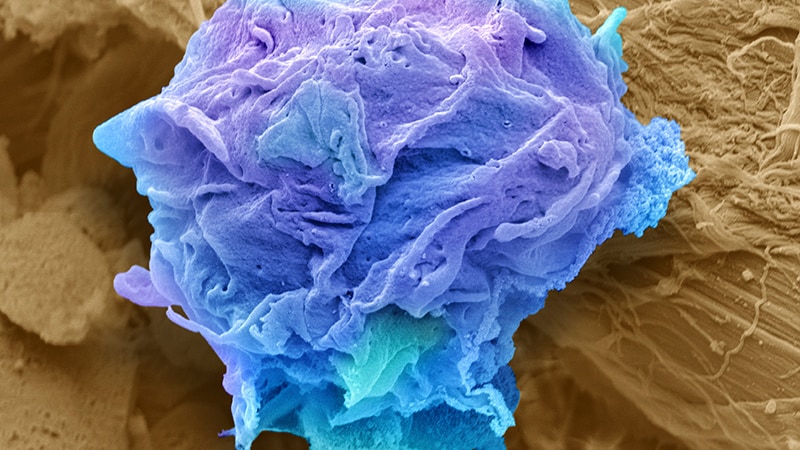TOPLINE:
More than half (56.2%) of patients who are newly diagnosed with lymphoma and myeloma experience clinically significant anxiety or depression symptoms, with lower financial satisfaction and medical mistrust increasing anxiety risk. Depression symptoms, present in 27.5% of patients, were linked to significantly lower quality-of-life (QOL) scores.
METHODOLOGY:
- A cross-sectional survey study conducted at Dana-Farber Cancer Institute in Boston included 200 adult patients (response rate 74.9%) within 6 months of initial lymphoma or myeloma diagnosis between July 2021 and September 2022.
- Researchers used the Hospital Anxiety and Depression Scale to assess anxiety and depression symptoms, with scores > 8 indicating clinically significant symptoms.
- Analysis examined sociodemographic factors associated with anxiety/depression symptoms and their relationship with QOL using multivariable analyses.
- Patient recruitment occurred through weekly clinic schedule reviews, with participants completing either web-based or paper surveys after providing verbal informed consent.
TAKEAWAY:
- Among participants, 52.0% (95% CI, 44.9-45.1) met criteria for anxiety and 27.5% (95% CI, 21.6-34.3) for depression, with 46 patients experiencing both conditions.
- Lower financial satisfaction (adjusted odds ratio [AOR], 2.43; 95% CI, 1.25-4.78) and higher medical mistrust (AOR, 2.09; 95% CI, 1.10-4.02) were independently associated with increased anxiety risk.
- Patients with lower social support scores showed nearly triple the odds of depression (AOR, 2.88; 95% CI, 1.42-6.00) compared with those with higher support levels.
- Depression was associated with significantly lower QOL scores (adjusted mean difference, −22.0; 95% CI, −28.1 to −15.9).
IN PRACTICE:
“More than half of patients newly diagnosed with lymphoma or myeloma experience clinically significant anxiety or depression symptoms, with associated detriment to their QOL. These findings underscore the need for systematic mental health screening and psychological interventions for this population,” wrote the authors of the study.
SOURCE:
The study was led by Oreofe O. Odejide, Dana-Farber Cancer Institute. It was published online on April 8 in Blood Advances.
LIMITATIONS:
According to the authors, the study’s limitations include its single-center tertiary care setting, potentially affecting generalizability; possible nonresponse and participation bias despite high response rates; potential social desirability bias, leading to underestimation of symptoms; and limited racial and ethnic diversity in the sample. The cross-sectional design also prevented determination of whether anxiety and depression symptoms predated cancer diagnosis.
DISCLOSURES:
The study was supported by grants from the National Cancer Institute (U54 DF/HCC-UMB-CA156732; CA156734). Odejide received additional funding from the National Cancer Institute (KO8-CA218295) and disclosed consulting for AstraZeneca. Additional disclosures are noted in the original article.
This article was created using several editorial tools, including AI, as part of the process. Human editors reviewed this content before publication.
Source link : https://www.medscape.com/viewarticle/blood-cancer-blues-can-dx-take-toll-mental-health-2025a100084g?src=rss
Author :
Publish date : 2025-04-04 08:26:00
Copyright for syndicated content belongs to the linked Source.
